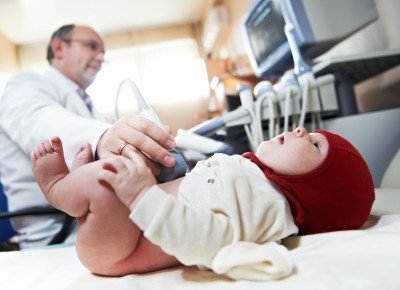- Home
- Editorial
- News
- Practice Guidelines
- Anesthesiology Guidelines
- Cancer Guidelines
- Cardiac Sciences Guidelines
- Critical Care Guidelines
- Dentistry Guidelines
- Dermatology Guidelines
- Diabetes and Endo Guidelines
- Diagnostics Guidelines
- ENT Guidelines
- Featured Practice Guidelines
- Gastroenterology Guidelines
- Geriatrics Guidelines
- Medicine Guidelines
- Nephrology Guidelines
- Neurosciences Guidelines
- Obs and Gynae Guidelines
- Ophthalmology Guidelines
- Orthopaedics Guidelines
- Paediatrics Guidelines
- Psychiatry Guidelines
- Pulmonology Guidelines
- Radiology Guidelines
- Surgery Guidelines
- Urology Guidelines
AHA scientific statement on Pediatric Post–Cardiac Arrest Care

The American Heart Association has released a scientific statement on Pediatric Post- Cardiac Arrest Care (PCAC). The Statement appeared in Circulation a Journal of American Heart Association.
This clinical statement describes the available peer-reviewed published evidence on the care of children resuscitated from cardiac arrest, including pediatric PCAC and prognostication, and provides a list of knowledge gaps. It is intended at providing clinicians with recommendations to optimize pediatric PCAC, highlighting the knowledge gaps that should be addressed by researchers to improve future care and outcomes.
Key takeaways of scientific statement
- It is estimated that more than 5000 children experience OHCA annually in the United States with an approximate incidence of nontraumatic OHCA of 8.04 per 100 000 person-years.
- With current ROSC rates of approximately 36%, it is estimated that more than 1800 infants and children are at risk annually for PCAS after OHCA.
- The study objective is to provide clinicians with recommendations to optimize pediatric post-cardiac arrest care, highlighting the knowledge gaps that should be addressed by researchers to improve future care and outcomes.
- The paper clarifies that, in post-cardiac arrest patients, long-term neurobehavioral and neuropsychiatric outcomes, as well as HRQoL, vary based on numerous cardiac arrest factors, with some patients improving over time.
- Future focus on the assessment of such outcomes in the long-term, as well as the enduring burden on survivors and families, will continue to be important in determining if these lasting outcomes are becoming better as systems and providers strive to improve CPR quality and PCAC.
- An estimated 6000 infants and children develop IHCA annually with estimates of approximately 4800 infants and children being at risk for development of PCAS annually after IHCA. More than 6500 children per year in the United States have PCAS.
- During transport, patients should receive the same care with the same treatment targets as those in the hospital setting.
- Post-cardiac arrest brain injury remains a leading cause of morbidity and mortality in adults and children because the brain has limited tolerance of ischemia, hyperemia, or edema.
- From 20 years of published scientific literature on pediatric cardiac arrest, adult cardiac arrest, and pediatric critical illness in peer-reviewed published literature, the statement summarizes the epidemiology, pathophysiology, management, and prognostication after return of sustained circulation following cardiac arrest, and it provides consensus on the current evidence supporting elements of pediatric post-cardiac arrest care.
- The importance of this study is that it considers not only the short-term outcomes of the pediatric post-cardiac arrest patient, but moreover at the long-term outcomes of survival, neurologic function, neurobehavioral function, health-related quality of life, and family burden in the context of having surpassed the initial shorter-term outcomes after OHCA and IHCA.
For further reference, click on the link
brain injurycardiac arrestCardiac Arrest CareCirculationCPRHrQoLMedical newsmedical news indiaOHCApediatric PCACPediatric Post–Cardiac Arrest Carerecommendationsscientific statement
Next Story
NO DATA FOUND

Disclaimer: This site is primarily intended for healthcare professionals. Any content/information on this website does not replace the advice of medical and/or health professionals and should not be construed as medical/diagnostic advice/endorsement or prescription. Use of this site is subject to our terms of use, privacy policy, advertisement policy. © 2020 Minerva Medical Treatment Pvt Ltd